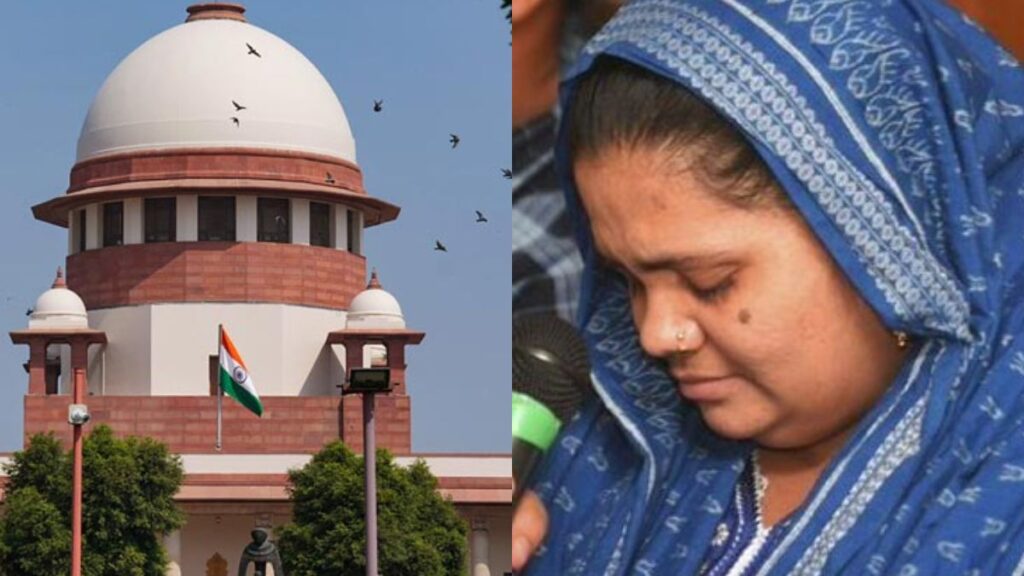
The government of Gujarat was complicit and collaborated with the guilty: Supreme Court on early rape convictions in Bilkis Bano
Last Updated on January 8, 2024 by News Desk
Issue:
In the Premature Release Scandal in the Bilkis Bano Rape Case, the Supreme Court Declares the Gujarat Government’s Role.
Facts of the Case:
The Gujarati government was chastised by the Supreme Court in a noteworthy development for its role in the prisoners’ early release request in the Bilkis Bano gang rape case. The May 2022 verdict that gave Gujarat the power to determine whether to remit prisoners should have been challenged by the state government, according to the panel of Justices BV Nagarathna and Ujjal Bhuyan.
Arguments Presented by Parties:
The Gujarat government cooperated with the convicted, enabling for their early release following the May 2022 verdict, as the Supreme Court noted. The inmates had earlier petitioned the Supreme Court for a ruling on their parole, and the Court declared that the government was involved and conspired with them. It was determined that the Gujarat government had usurped the Maharashtra government’s jurisdiction by using its power to provide relief to the prisoners.
Reasoning of the Judgment:
The Court found that the prior plea’s withholding of certain information had deceived it. The prisoner had concealed the fact that the Gujarat High Court had previously rejected his request for the Gujarat government to make a decision. Rather than in Gujarat, he had applied for an early release in Maharashtra. The convict’s activities were deemed dishonest by the panel, which also censured him for not appealing the Gujarat High Court’s ruling to the Supreme Court.
Judgement:
Due to the convict’s concealment of important information, the court declared the May 13, 2022 order to be non est and legally void. A High Court order can’t be thrown aside in a PIL, it said, and regarded the previous verdict per incuriam for not adhering to the final judgment of a nine-judge panel. The Supreme Court emphasized that the court must provide authorization before the relevant government may issue remission orders, regardless of the location of the conviction or the prisoners’ incarceration.
Case title : Bilkis Yakub Rasool vs Union of India and ors.
Written By: Nikita Shankar @nikitaashankar





